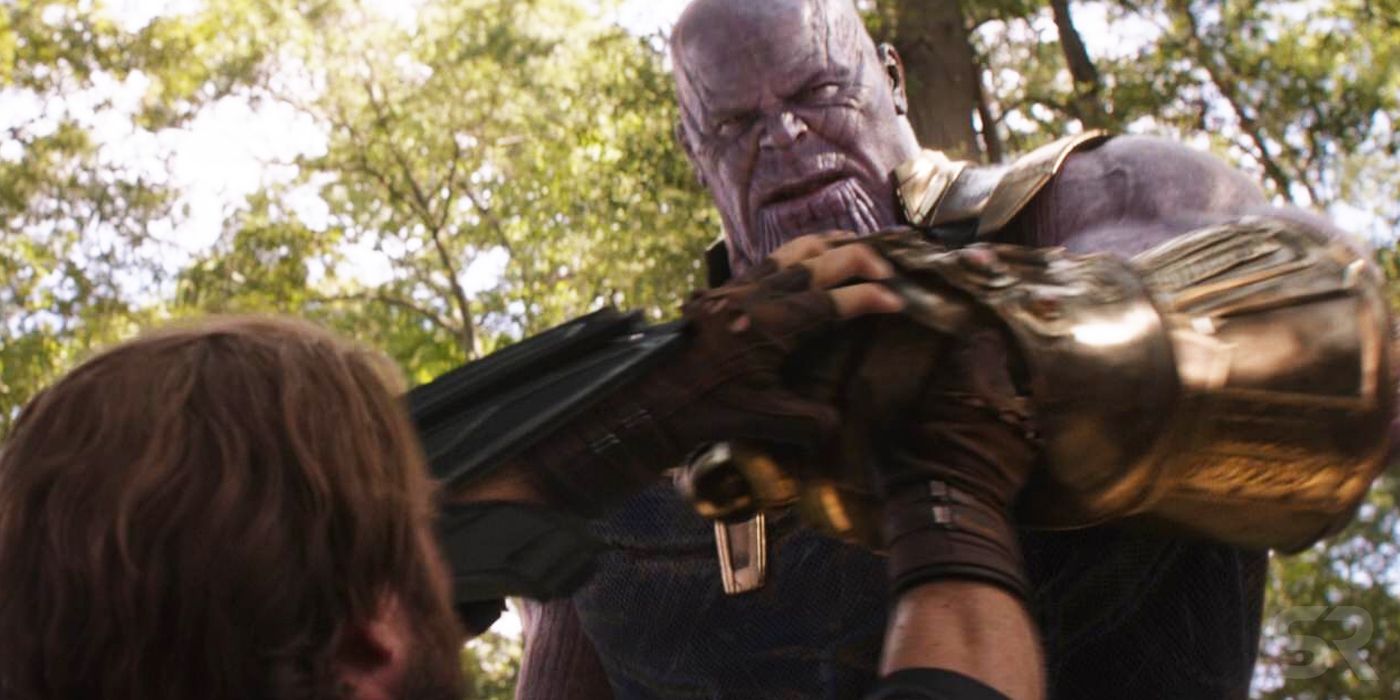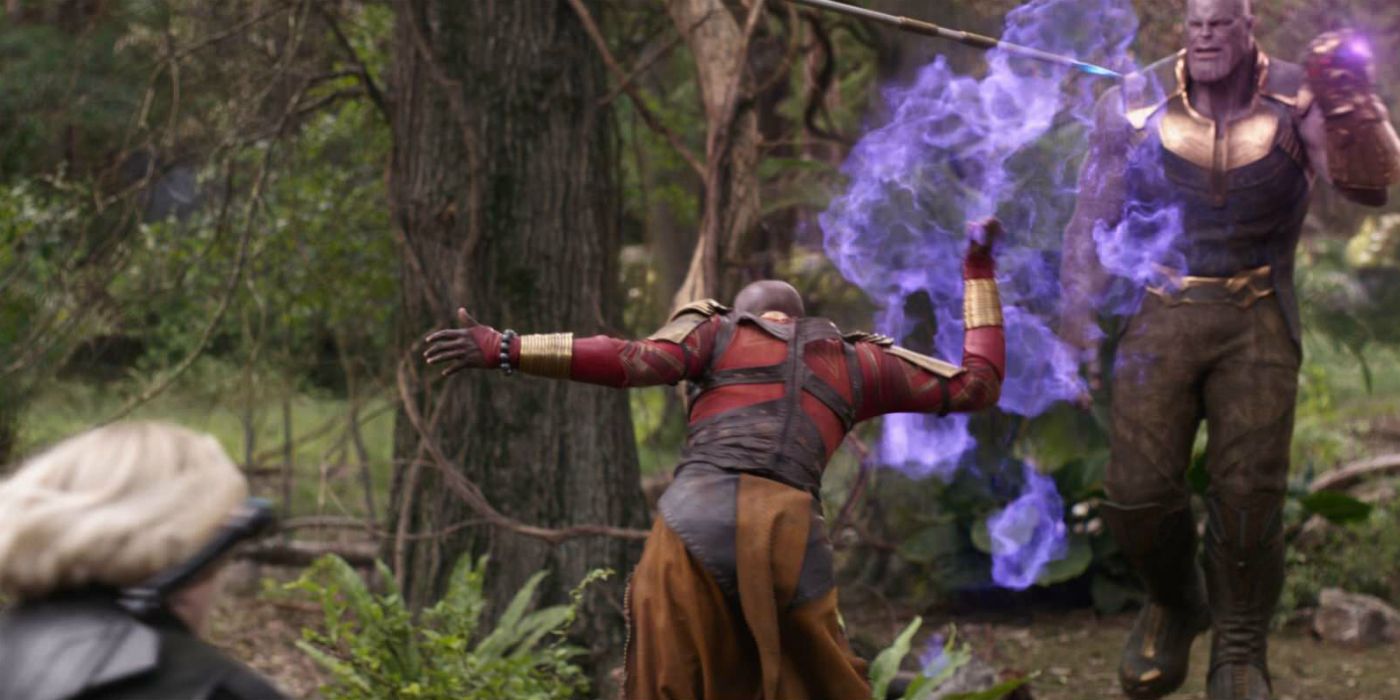It's been revealed why Thanos didn't kill any heroes in battle during Avengers: Infinity War? It is a peculiarity of the film that, despite Thanos' stated goal of wiping out half the life in the universe, the Mad Titan doesn't actually clock up a terrible death toll over the course of the film - at least until he snaps his fingers, of course.
Avengers: Infinity War saw Earth's Mightiest Heroes go head-to-head against Thanos, with the fate of the universe at stake. However, over the course of the movie, only one of the Avengers died at his hands: Vision, when Thanos plucked the Mind Stone from his forehead. That's quite remarkable when you consider that Thanos had acquired all but one of the Infinity Stones by the time he arrived in Wakanda, but even base-line humans like Black Widow survived a beat-down from Thanos.
Related: War Machine Was Intended To Have A Bigger Role In Infinity War
This has prompted some confusion from fans, who've wondered why Thanos was so oddly compassionate when his goal was, ultimately, mass genocide. A possible answer is offered in The Art of Avengers: Infinity War. Marvel Studios Head of Visual Development Ryan Meinerding explained the degree of thought that went into Thanos's character, which then heavily influenced the designs:
"The plan of getting all the Infinity Stones is putting [Thanos] in the position of being so powerful that he is sort of calmer, more single-minded, and more reasonable. He is not necessarily worried about killing the heroes. As long as he ends up with the stones, he can accomplish what he wants to."
It's an interesting insight into Thanos's motives in Avengers: Infinity War and hints why so few heroes died at his hands; he simply didn't need to kill them. This version of Thanos is, however insane, entirely logical; he expends just the amount of energy necessary to achieve his goal. That means defeating the heroes - with ease in most cases - but he doesn't see the need to kill them. This argument has one notable strength, in that it makes the fact Thanos clearly decided to kill Tony Stark all the more remarkable; he had recognized Stark as so great an obstacle to his plans that Iron Man had to die.
Unfortunately, Infinity War isn't particularly consistent with the idea of Thanos's relentless commitment to logically pursuing his goal. When Thor arrives on Nidavellir, for example, he discovers that Thanos has committed a horrific act of genocide. Where usually Thanos wipes out half of a people's population, as part of his insane idea of balance, on Nidavellir he had slaughtered them all. It's possible to argue that he had a reason for this - he didn't want knowledge of the Infinity Gauntlet's existence to be revealed, or for the Dwarves to forge a weapon that could defeat him - but that still doesn't track with Thanos leaving Eitri - King of the Dwarves - alive. As co-writer Stephen McFeely explains in The Art of Avengers: Infinity War, this was intended to show "that he's a ruthless SOB." Clearly the Mad Titan's logic sometimes crumbles in the face of a sadistic desire to cause pain.
Of course, in reality the (out-of-universe) reason Thanos killed so few was because Marvel wanted every death in Avengers: Infinity War to stand out. That's why there was so much focus around the few pre-snap deaths - Heimdall, Loki, Gamora, and ultimately Vision. They were all moments of emotion to the story, with Gamora's death being the worst thing Thanos feels he has ever done in the pursuit of his cause.




